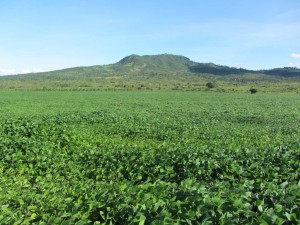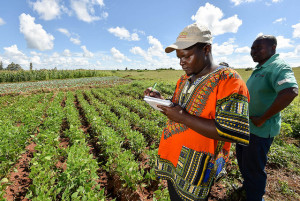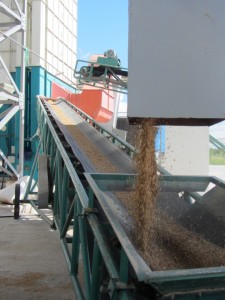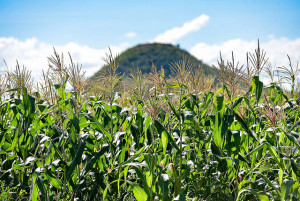By George Schoneveld, Senior Scientist, Center for International Forestry Research (CIFOR)

As global food and energy markets rallied in the late 2000s, scores of foreign agricultural investors sought to acquire land in sub-Saharan Africa to produce food and biofuel crops. During this period, investors managed to secure access to almost 23 million hectares according to some estimates. Assuming that these investments would bring in much needed capital to support domestic agricultural modernization and poverty alleviation objectives, many African host countries initially met this renewed interest in their agricultural sector with great optimism.
Many academics and civil society organization on the other hand were quick to caution against the potentially devastating social and environmental impacts. A rich emerging body of literature has also begun to paint a picture of agricultural investors being complicit in land grabbing, disrespecting customary land rights, displacing subsistence farming, and destroying environmentally significant landscapes. It has been argued that since investors favor business models that rely on large-scale plantation monoculture rather than those that productively integrate the rural poor, the touted development impacts have remained illusive.
Critics argue that processes of globalization have reproduced economic structures that enable foreign capital to exploit Africa’s natural resource wealth for external geopolitical and economic interests. It is common perception, for example, that many investors from high-income Northern economies invest in African agriculture to serve their own biofuel markets. However, renewable energy regulations linked to climate change and energy security agendas created those markets in the first place. Speculative sources of finance originating from hedge and private equity funds reportedly facilitated this trend.
Many agricultural investors from the Middle East and Asian countries such as China, South Korea, and India are rather seen as responding to opportunities in their home food markets; often with the financial support or directly involvement of their governments that seeks to enhance national food security. This suggests that Africa is increasingly servicing global resource scarcities without adequately benefiting itself.
Unpacking agricultural investment trends in Mozambique

Under the KNOWFOR program, funded by the UK Department for International Development (DFID), the Center for International Forestry Research, in collaboration with Utrecht University, studied the social and environmental performance of agricultural business models in Mozambique and other countries. Drawing on official investment statistics and surveys with 69 major investors, one part of the project sought to sketch a more nuanced picture of agricultural investment trends and social and environmental conduct. These findings, recently published as a CIFOR Working Paper, suggest that many of the popular preconceptions about agricultural investments in Africa fail to hold up to closer scrutiny.
While Mozambique is widely regarded as a major playground for biofuel investments, in practice they only comprise 8 percent of total registered investments and less than 1 percent of total active investments. Instead, findings show that almost three quarters of active agricultural investors are articulated solely to food markets, concentrating especially on the production of cereal and horticulture crops. Rather than exporting these, investors sold on average 73 percent of the crops on the Mozambican market.
Those investors that do export typically do so only to South Africa. Since prices for preferred investor commodities such as maize, soy, and rice are systematically higher on the domestic and regional markets than on the international market, most investors clearly operate by profit-maximizing principles.
In contrast to popular perception, Asian and Middle Eastern investors in Mozambique are apparently not driven by political interests of their governments. These investors comprise less than 9 percent of registered investments.

The majority of active registered investments originate from within the region, notably South Africa, Zimbabwe, and Mozambique, as do their financiers. This is followed by investments from former colonial power Portugal. Although Brazilian investors are often said to be making inroads into Mozambique as a result of increased Brazilian bilateral technical assistance, only two Brazilian investments were found to be operational on the ground. The relative importance of domestic and neighboring country capital sources and end-markets highlights that commercial agriculture expansion in Mozambique is primary driven by intra-regional dynamics, with international capital, markets, and political interests playing only a secondary role.
Business models and conduct

With 87% of sampled investors involved in direct cultivation activities, a preference for plantation-based business models is evident. Nevertheless, almost half of the investors in the survey were found to be sourcing from smallholders, typically to supplement in-house production. From those sourcing from smallholders, approximately half did so through contractual arrangements and half through open market sourcing mechanisms.
Because side-selling is endemic in Mozambique’s more commercialized grain markets, contract farming was found to be particularly prevalent for cash crops such as sugarcane, cotton, and bananas that lack alternative off-take markets. This implies that investors rarely invest directly in the productivity of important smallholder staple crops.
Some 54 percent of sampled plantation investments were found to be green field operations involving the acquisition of customary land. A green field investment is a form of foreign direct investment where a company starts a new venture by constructing new operational facilities from the ground up.
Approximately 83 percent of these investments caused displacement of smallholders. By contrast, investors that acquired land through other means such as renting and acquisition of land already titled for commercial agriculture only displaced smallholders in 19 percent of the cases.
While highlighting the adverse social footprint of many plantation investments, green field investments were, however, found to be considerably more attuned to community interests. They initiated on average four times as many local economic development activities and three times as many community infrastructure initiatives than the other plantation investments. These differences are foremost attributable to the negotiation space created by the community consultation and consent that the Mozambican land law mandates in cases where customary land alienations are involved.
Our results also show that investor origin strongly shapes its social conduct. For example, investors from Northern countries were found to be significantly more inclined to invest in local economic development activities and to pay significantly higher wages to its employees than Southern investors. This – perhaps controversially – could point towards differences in corporate social responsibility norms.

The sampled plantation investments left a significant environmental footprint: more than three-quarters were established through the conversion of natural habitats, notably forests in mosaic landscapes. The extent to which investors adopted measures to mitigate associated environmental impacts, though, varied widely and there was no correlation with the origin of the investor. Environmental conduct was found rather to be a product of investor compliance with voluntary third-party certification with environmental criteria such as GLOBAPGAP and FSC. Most certifying companies claimed that their decision to comply with a certification scheme was in turn motivated primarily by the demands of external markets. This compliance, however, was not found to translate into improved social conduct.
Putting preconceptions to rest
Our findings show that agricultural investments in Mozambique do not fit the mold of the popular debate. Rather than being a driven by global capital, those investments are primarily a manifestation of increasingly dynamic regional trade and investment relations. The notion that recent investments principally serve external food and energy security agendas does not hold true in Mozambique, as domestic market opportunities in particular feature prominently in investor business plans.
Similarly, while investors do appear to favor plantation-based business models, since many also engage smallholders and contribute to community development they cannot be simply viewed as capitalist enclosures. With Mozambique being one the largest agricultural investment destinations in Africa, these findings suggest that in many other African countries reality may be a little more complex than we are led to believe.











